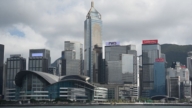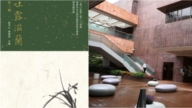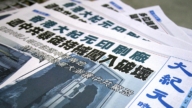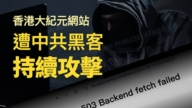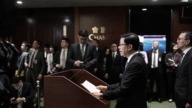【新唐人2014年12月09日訊】香港立法會8號開會審議《版權(修訂)條例草案》,這個條例草案被稱為「網絡23條」,由於可能箝制網絡言論和創作自由,三年前引髮網民強烈反彈而觸礁。這次的重新審議,也受到網絡團體的關注。
立法會8號開會審議「網絡23條」,受到網絡團體和媒體的關注,香港《蘋果日報》線上視頻直播,網絡組織「鍵盤戰線」和「版權及二次創作關注聯盟」,也為市民文字直播「網絡23條」草案委員會會議及解釋條文內容。
「網絡23條」是網民對這個法案的戲稱,正式的名字叫做《版權(修訂)條例草案》。「23條」的稱呼,則來自於《香港基本法》中被抨擊為惡法的第23條。「23條」立法被認為會嚴重影響香港市民固有的自由、權利和資訊流通,03年「七一」時曾引發50萬港人上街遊行反對,港府最終終止了立法程序。
而「網絡23條」三年前的修訂草案,同樣引髮網民和文藝界的強烈反對。很多網民都對草案中的「版權條例刑事化」和「二次創作不受豁免」非常抗拒,擔心修訂通過後,香港可能像中國大陸,以法例審查網上言論及創作,箝制言論及創作自由。由於各方面的反彈,最終有關修訂在2012年5月被擱置。
今次立法會8號審議的最新草案,是港府在今年6月提出的,如果獲得通過最快明年生效。新草案把戲仿、諷刺、滑稽、模仿、評論時事及「引用」等作品納入豁免範圍。不過,網民團體不滿非時事或非惡搞題材不能豁免,認為創作自由依然受到壓制。
而港人目前對「網絡23條」的態度,也在佔中運動的一個插曲中體現出來,11月中旬,一些蒙麵人士衝擊了香港立法會,就是因為有人在網上號召前去阻止立法會當天審議「網絡23條」。雖然事後證明,立法會當天並沒有有關議程。
原《香港聯合報》文藝專欄作家張成覺:「網民對這個『網絡23條』肯定也並不是贊同的。因為這個東西有束縛老百姓言論的意味在裏面。原來這個『23條』已經很大的牴觸了,他們也援用了這樣一個名稱的話,那就表明瞭態度了,就是市民對這個並不認同。」
而香港網民對「網絡23條」可能打破「一國兩網」,讓香港也像大陸一樣,逐漸失去網絡言論自由的擔心,並非毫無道理。
根據非政府組織「自由之家」(Freedom House)4號在華盛頓發佈的《2014年網絡自由》報告,通過對全球65個國家的調研,中國排名倒數第三,再次被列為世界互聯網自由度最差的國家之一。這一報告的作者還表示,香港的「佔中行動」等,讓中共更加擔心網絡自由會動搖其統治地位。
張成覺:「北京方面對於香港的控制,是絕對不會放鬆的。在目前這個情況下,趨勢只會越來越嚴。所以中國的網絡自由度這麼嚴重的問題,嚴峻的態勢,肯定對香港是不利的。」
另一方面,長期關注中國各地維權情況的「民生觀察網站」負責人劉飛躍表示,中國的網絡自由度的確大幅度下降。
「民生觀察網站」負責人劉飛躍:「網絡採取了很多整肅的措施。從去年年底開始的,打大V的行動,到今年一直在繼續﹔還有一些記者,很多還是官方的,他們自己的記者都被抓捕了,有的被判刑了。另外像微博啊,很多人微博都沒用了,不敢用了,不敢發言了。」
目前在中國大陸,不僅臉書、推特、Youtube等海外社交平臺被屏蔽,香港學生9月罷課時,新浪微博在前一天就封鎖了「罷課」和「香港」等關鍵詞。還有不少大陸民眾因為轉發佔中的帖子和照片被抓捕。
而在香港,學生和市民可以自由使用社交網絡平臺,隨時分享佔中的照片、標語、視頻等。「自由之家」分析研究員馬德琳•厄普(Madeline Earp)對媒體表示,這就是中國政府為甚麼如此恐懼網絡自由、也是中國網民一直想辦法要突破網絡封鎖的原因。
採訪編輯/尚燕 後製/鍾元
Article 23 Under Review Sparks Concerns Amongst Hong Kongers.
On Dec. 8, Hong Kong Legislative Council held a meeting
to review a bill for “Copyright (Amendment)
Ordinances Draft",
which was referred to as “Internet Article 23″.
This bill may well suppress freedom of expression
and creation on the internet.
Three years ago, it sparked a strong reaction from internet users,
hence it has been shelved.
This review has also created a concern amongst groups
on the Internet.
Hong Kong Legislative Council reviewed
the “Internet Article 23″ on Dec. 8,
sparking concerns to internet groups and media.
Hong Kong “Apple Daily" arranged an online video broadcast,
and Internet group “Keyboard Fronts" and " Union
of Concerning Copyright and Second Creation",
also relayed the online text draft version of the committee
meeting on “Internet Article 23, with the hope “
of interpreting the provisions of the draft.
“Internet Article 23″ is a nickname named by netizens
for this bill. It is formally called a Bill for
“The Copyright (Amendment) Ordinances Draft".
The title of “Article 23″ is from the Article 23 of the
“Hong Kong Basic Law"
which has been criticised as a harsh code.
“Article 23″ is considered to seriously affect
the inherent freedom, rights and flow of information
of Hong Kong people,
which caused half a million Hong Kong people to demonstrate
against it on the streets in July 1, 2003.
This action finally led to the Government having to terminate
its legislative process.
When the draft of “Internet Article 23″ was amended
three years ago, it also triggered strong opposition
from the Internet users and the literary and art circles.
Many Internet users are strongly resistant
to the specifics of the article draft,
including “criminalisation of the Copyright Ordinance"
and “second creation is not exempt".
The internet users worry, that to pass the amendment version,
will convert Hong Kong in to the likes of mainland China,
which will review the online speech and its creation,
suppressing the freedom of speech and the creative.
Due to the resistance of all aspects, the amendments were
shelved in May of 2012.
The latest draft reviewed by the Legislative Council on Dec. 8,
was proposed in June of 2014 by the Government.
If it passes through, it will take effect no sooner than next year.
The new draft expands the exemption scope including
trick imitation, ironic, funny, imitation,
commenting on current affairs and “citing" other works.
However, netizen groups are dissatisfied with the theme of
non-current events and non-spoofing topics cannot be exempted,
and believe that the creating of freedom is still suppressed.
The present attitudes of Hong Kong people to “Internet Article 23″
have also been reflected through some incidents
of Occupy Central Movement.
In the middle of November, some masked people
attacked the Hong Kong Legislative Council,
this is because some people called on the internet
to stop the Legislative Council reviewing
“Internet Article 23″.
However, after the incident, it was confirmed that the Council
had no relevant agenda for that day.
The former literary columnist Chengjue Zhang of
“United Daily News Hong Kong":
“Netizens should disagree to this “Internet Article 23″
because the article means to trample upon
the free speech of the people.
The original “Article 23″ of the “Hong Kong Basic Law"
has been considerably resisted.
So they use such a name to show their attitudes,
which means that Hong Kong people do not agree with this."
Hong Kong Internet users worry that Article 23″ might break
the ruling of “one country, two Internets",
which turns Hong Kong more in to the ways of Mainland China,
gradually losing freedom of speech,
from this we see such a worry is not
without reason.
According to the “2014 Internet Freedom Report" released
by NGO “Freedom House" in Washington on Dec. 4,
among 65 surveyed countries in the world,
China ranked third in the polls,
and again listed as one of the world’s
Worst Internet Freedom Countries.
The author of the report also said Hong Kong’s
Occupy Central Movement,
makes the CCP ever more concerned that the Internet freedom
will shake its ruling status.
Chengjue Zhang: “Beijing will not completely release
its control over Hong Kong.
Under the current circumstances,
such a trend will become increasingly serious.
So such grim problems concerning China’s Internet freedom
and unfavourable circumstances, are certainly
no good for Hong Kong."
On the other hand, “Livelihood Watch Website" has concerns
over the human rights defence situation in China.
The website team leader Mr Liu Feiyao says,
the freedom of China’s Internet indeed has
a significant decline in the degree of freedom.
Liu Feiyue: “Many measures on the Internet have been taken
for purging the Internet.
From the end of last year, the incident of attacking the big (VIP’s)
of the internet community, has been maintained.
A lot of journalists, many of whom are from official agencies,
including their own reporters, have been arrested and some
even sentenced to jail.
Also like microblogging, a lot of people did not
use microblogging, because they were afraid to use it,
and did not dare to speak up."
In Mainland China, not only Facebook, Twitter, Youtube
and other overseas social networking platforms are blocked,
but also the Sina Weibo was blocked of key sensitive words
such as “strike" and “Hong Kong" on the first day
of Hong Kong students strike in September.
In addition, many people in Mainland China were arrested
due to forwarding Internet articles and photos
of Occupy Central.
In Hong Kong, students and the public are free
to use social networking platforms.
They are free to share photos, posters
and videos of Occupy Central.
“Freedom House" analysis researcher Madeline Earp
told the media that this is the reason,
why the Chinese government is so afraid of internet freedom,
as well as why the Chinese netizens have to find ways
to break through the Internet blockade.
Interview & Edit/ShangYan Post-Production/ZhongYuan


